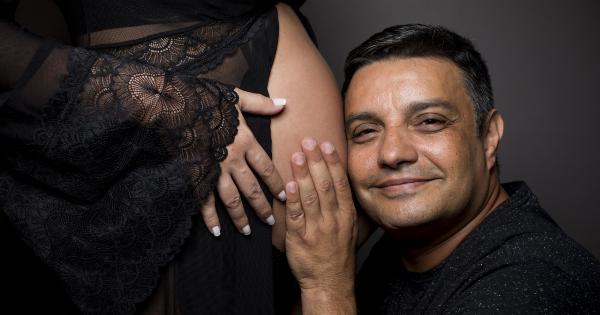Many expectant mothers eagerly await the onset of pregnancy symptoms, such as morning sickness. While morning sickness is a common occurrence during pregnancy, some believe that it may be more than just a sign of a healthy growing baby.
Some studies suggest that there could be a connection between morning sickness and the gender of the baby. In this article, we will delve into this intriguing topic and explore the possible correlations between morning sickness and baby gender.
What is Morning Sickness?
Morning sickness refers to the nausea and vomiting that some women experience during pregnancy. It is estimated that around 70-80% of pregnant women will experience some degree of morning sickness.
The symptoms usually start around the 6th week of pregnancy and may last until the 14th week, although they can persist throughout the entire pregnancy for some women.
Theories on the Connection
While there is no definitive scientific evidence to prove a direct link between morning sickness and baby gender, several theories have been proposed to explain the possible connection. Here are some of the most prevalent theories:.
Increase in Hormone Levels
During pregnancy, the body experiences an increase in hormone levels, particularly human chorionic gonadotropin (hCG) and estrogen.
Some researchers believe that higher hormone levels, especially hCG, may be associated with a higher likelihood of experiencing morning sickness. Therefore, if certain hormone levels are indicative of a particular gender, it could potentially explain the connection between morning sickness and baby gender.
Evolutionary Adaptation
Another theory suggests that morning sickness may be an evolutionary adaptation to protect the fetus from harmful substances. It is believed that pregnant women may become more sensitive to certain tastes and odors that could be indicative of toxins.
This adaptation would be advantageous for the survival of the fetus. Some proponents of this theory propose that the preference for aversive tastes and smells differ depending on fetal sex, leading to varying levels of morning sickness depending on the gender of the baby.
Maternal Immune Response
Researchers have also explored the role of the maternal immune response in the occurrence of morning sickness. It has been found that women carrying female fetuses have a stronger immune response compared to those carrying male fetuses.
This heightened immune response may trigger more severe symptoms of morning sickness, suggesting a potential link between baby gender and morning sickness.
Study Findings
Several studies have been conducted to investigate the connection between morning sickness and baby gender. While some studies have found a correlation, others have yielded inconclusive results. Here are the findings from some notable studies:.
Study 1: University of Washington
A study conducted at the University of Washington found that women who experienced severe morning sickness, known as hyperemesis gravidarum, were more likely to give birth to females.
The researchers suggested that this could be due to the increased estrogen levels associated with female fetuses.
Study 2: Harvard School of Public Health
Conversely, a study conducted at the Harvard School of Public Health found that women with more pronounced morning sickness symptoms were more likely to give birth to males.
This study proposed that the male fetus produces higher levels of hCG, which may contribute to more severe morning sickness symptoms.
Study 3: Swedish Council on Health Technology Assessment
The Swedish Council on Health Technology Assessment conducted a review of several studies on the topic and concluded that there was no clear association between morning sickness and baby gender.
They emphasized the need for further research to determine the exact relationship, if any.
Conclusion
While the connection between morning sickness and baby gender remains inconclusive, the topic continues to intrigue both expectant mothers and researchers alike.
While some studies have suggested a correlation between morning sickness severity and baby gender, others have found no such connection. It is important to note that each pregnancy is unique, and experiencing morning sickness or not does not necessarily indicate the gender of the baby.
Further research is needed to fully understand the possible relationship between morning sickness and baby gender.



























